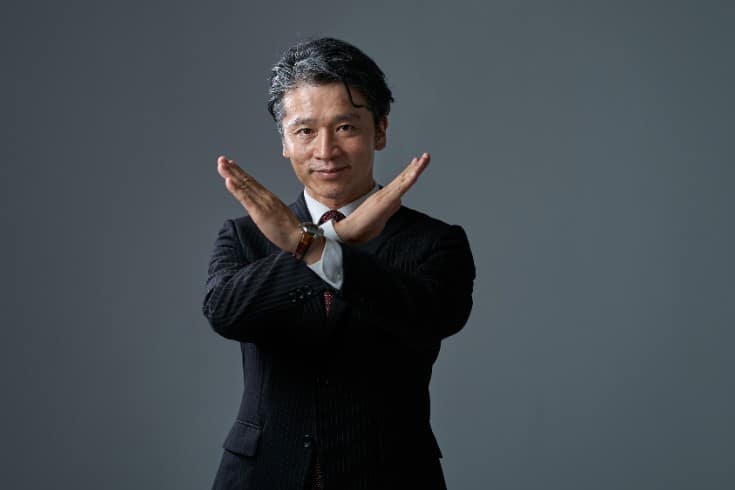Regulation of Directors' Duty to Avoid Competition and Conflict of Interest Transactions under Japanese Corporate Law

In the management of Japanese companies, directors possess extensive authority to drive business forward. However, this significant power is balanced by stringent duties designed to protect the interests of the company and its shareholders. To prevent directors from prioritizing their own interests over those of the company, Japanese Corporate Law has established various regulations. Among these, two particularly important rules that directors of companies operating in Japan should always be mindful of are the ‘duty to avoid conflicts of interest’ and the rules regarding ‘transactions with a conflict of interest.’ These regulations are not intended to unduly restrict the legitimate economic activities of directors. Rather, they exist to prevent the unfair use or damage of valuable management resources such as business opportunities, customer information, know-how, and assets by the management themselves. Correct understanding and adherence to these rules are essential for ensuring sound corporate governance, maintaining trust from shareholders, and sustaining the company’s continuous growth. This article provides a detailed professional analysis of these two crucial duties under Japanese Corporate Law, including their specific content, the necessary procedures for compliance, and the serious legal liabilities that arise from violations, illustrated with actual case examples.
The Duty of Non-Competition for Directors Under Japanese Corporate Law
The duty of non-competition for directors is a regulation designed to prevent directors from engaging in activities that compete with the company’s business and unjustly harm the company’s interests.
The Basis and Content of the Non-Competition Obligation Under Japanese Corporate Law
The direct legal basis for this obligation is found in Article 356, Paragraph 1, Item 1 of the Japanese Companies Act. This provision stipulates that directors must obtain prior approval from the company when they intend to “engage in a transaction that belongs to the category of business of the stock company for themselves or a third party.” This obligation applies to all directors, including the representative director and non-executive directors who do not participate in business execution.
The term “transaction that belongs to the category of business of the company” refers to transactions that compete with the business the company conducts as stated in its articles of incorporation and is currently engaged in. The interpretation of this is broad; for example, there are court cases where it has been interpreted to include not only the sale of products if the company is in manufacturing but also transactions for purchasing raw materials essential for conducting business.
Furthermore, this obligation also protects the company’s future business opportunities. Case law has determined that even if the company has not yet entered a business field, if there are concrete plans and preparations underway to do so, such business is considered to be included in the “category of business of the company.” This is intended to prevent directors from using their position to preemptively take advantage of the company’s strategic business plans and deprive the company of benefits (opportunities) it would have otherwise gained. This concept demonstrates that the director’s obligations not only protect the current business but also safeguard the company’s potential for future growth from a strategic perspective.
Approval Procedures
When a director intends to engage in a competing transaction, they must go through the appropriate approval procedures. The approving authority varies depending on whether the company has a board of directors. For companies with a board of directors, the approval of the board is required, whereas for companies without a board of directors, the approval of the shareholders’ meeting is necessary. This is stipulated by Article 365, Paragraph 1 of the Japanese Companies Act.
To obtain approval, the director in question must disclose “material facts” related to the transaction. This disclosure serves the important purpose of providing the approving authority with the information necessary to make a rational decision on whether to permit the competing transaction. While the law does not provide a specific definition of “material facts,” it is generally understood to include essential information for grasping the overall picture of the transaction, such as the type of transaction, the counterparty, the subject matter, price, quantity, and duration. Approval based on insufficient disclosure of information may later be contested for its validity.
Furthermore, in companies with a board of directors, a director who has obtained approval and carried out a competing transaction also has the duty to report the material facts related to the transaction to the board of directors without delay after the transaction (Article 365, Paragraph 2 of the Japanese Companies Act). This allows the board of directors to supervise the execution of the transaction and continuously monitor whether the interests of the company are being harmed.
Effects of Breach of Duty
When a director engages in competitive trading without approval, they incur serious responsibilities towards the company. If the company suffers damage due to the competitive trading, the director is deemed to have neglected their duties and is liable for damages to the company under Article 423, Paragraph 1 of the Japanese Companies Act.
Particularly important is the provision of Article 423, Paragraph 2 of the Japanese Companies Act. This article stipulates that the amount of profit gained by the director or a third party from the competitive trading is “presumed” to be the amount of damage suffered by the company. Normally, it is extremely difficult for a company to concretely prove the amount of damage, but this presumption rule allows the company to simply claim the amount of profit gained by the violating director. The burden of proof shifts to the director, who must demonstrate that the company’s damage is less than the profit gained. This provision facilitates the company’s pursuit of responsibility and serves as a strong deterrent against competitive activities. The presumption of damage amount replaces the “right of intervention” (the company’s right to consider the director’s transactions as its own) that existed under the former Japanese Commercial Code, and is regarded as a more practical and effective remedy.
On the other hand, regarding the validity of the competitive trading itself conducted without approval, it is generally considered effective in relation to the third party who is the counterparty to the transaction. The duty to avoid competition is an internal regulation between the company and the director, and it is believed that external transactions should not be invalidated to the detriment of transactional security.
Post-Resignation Non-Compete Obligations Under Japanese Corporate Law
When a director resigns from their position, the statutory non-compete obligation under Japanese Corporate Law generally ceases to exist. However, this does not mean that the resigned director is free to engage in competition without any restrictions.
A company can enter into an agreement with a director to prohibit competitive activities for a certain period after resignation (a non-compete agreement). Nevertheless, such agreements restrict the ‘freedom of choice in employment’ guaranteed by Article 22, Paragraph 1 of the Japanese Constitution, and therefore, their validity is strictly scrutinized by the courts. In case law, the following factors are comprehensively considered when determining the validity of the contract:
- The length of the prohibited period (periods exceeding two years are commonly deemed invalid)
- The geographical and professional scope of the prohibition
- The legitimate interests of the company that need protection (such as the existence of trade secrets to be safeguarded)
- The presence of adequate compensation for the restrictions (such as an increase in severance pay)
Even in the absence of a non-compete agreement, a director who abuses their position during their tenure to prepare for competition after resignation can be held liable for a breach of their duty of loyalty. For example, actions such as strategically poaching subordinates to prepare for the establishment of a new company while still in office can lead to liability for damages to the company, even if the competitive activities occur after resignation. In the Tokyo District Court decision on April 27, 2007 (the Realgate case), a director who poached employees to establish a new company was found to have breached their duty of loyalty and was ordered to pay damages.
Directors’ Conflicts of Interest Transactions Under Japanese Corporate Law
Regulation of conflicts of interest transactions is a system designed to manage transactions that may conflict with the interests of directors and the company, preventing directors from sacrificing the company’s interests for their own gain.
Types of Conflict of Interest Transactions Under Japanese Corporate Law
Conflict of interest transactions are regulated by Article 356, Paragraph 1, Items 2 and 3 of the Japanese Companies Act, and they can be broadly divided into two types.
The first type is “direct transactions” (as per the same paragraph, Item 2). This refers to cases where a director engages in transactions directly with the company either for their own benefit or for a third party. Typical examples include a director selling real estate they own to the company or the company borrowing money from a director. Transactions where a director, acting as a representative of another company, deals with the company they serve as a director for, also fall under this category of direct transactions.
The second type is “indirect transactions” (as per the same paragraph, Item 3). These are transactions between the company and a third party other than the director, which, in substance, involve a conflict between the interests of the company and the director. The most straightforward example is when a company provides a debt guarantee for a director’s personal bank loan. In this scenario, while the company assumes risk as a guarantor, the director benefits from the increased ease of obtaining a loan, thus creating a conflict of interest.
Approval Procedures and Exceptions Under Japanese Corporate Law
Similar to non-compete transactions, when engaging in conflict of interest transactions, companies with a board of directors require prior approval from the board, while companies without a board need approval from the general shareholders’ meeting .
A critical aspect of this approval resolution is that directors with a “special interest” in the transaction cannot participate in the vote (Article 369, Paragraph 2 of the Japanese Companies Act) . This rule prevents directors who are parties to the conflict of interest transaction from approving deals that are advantageous to themselves.
However, transactions that may formally appear to be conflicts of interest but do not substantively harm the company’s interests may be exempt from approval . The purpose of this regulation is to protect the company’s interests; therefore, it is considered irrational to require procedures when there is no risk of harm. For example, a transaction where a director lends money to the company interest-free and without collateral is deemed beneficial to the company and poses no risk of harm, thus no approval is necessary (Supreme Court of Japan, December 6, 1963, decision) . Similarly, transactions between a company with a single shareholder and that shareholder who is also a director, or transactions between wholly-owned subsidiaries, are generally not required to have approval since they do not substantively harm the interests of the shareholders .
The Effects of Breach of Duty Under Japanese Corporate Law
When a conflict of interest transaction is conducted without approval, its legal effects differ significantly from those of competitive transactions.
Firstly, regarding the validity of the transaction itself, the Supreme Court of Japan adopts the “theory of relative invalidity” (Supreme Court of Japan, October 13, 1971, Grand Bench decision). This theory posits that while a conflict of interest transaction without approval is invalid between the company and the director who is the party to the transaction, the company cannot assert this invalidity against a third party who acted in good faith without knowledge of the company’s lack of approval. This approach strikes a balance between protecting the company’s interests and safeguarding the trust of third parties who have dealt with the company without knowledge of the situation, thereby ensuring the security of transactions.
Next, regarding the responsibility of directors to the company, there are special provisions that differ from those concerning competitive transactions. Article 423, Paragraph 3 of the Japanese Companies Act presumes that a director involved in a conflict of interest transaction has neglected their duties (duty of care). The subjects of this presumption include directors who have conducted transactions for their own benefit, directors whose interests conflicted with the company through indirect transactions, and directors who voted in favor of the approval resolution.
In particular, the responsibility of directors who have conducted transactions for their own benefit is extremely heavy, and they cannot escape liability even if they prove there was no negligence (liability without fault). On the other hand, directors who merely voted in favor of the approval resolution can avoid liability if they can prove they were not negligent. Thus, the responsibility rules for conflict of interest transactions are designed to vary the severity of liability according to the degree of involvement, resulting in a more intricate system.
Comparing Non-Competition Obligations and Conflict of Interest Transactions Under Japanese Corporate Law
The non-competition obligations and regulations on conflict of interest transactions set forth by Japanese Corporate Law are both crucial systems designed to prevent directors from abusing their position and harming the interests of the company. However, there are significant differences in the interests they protect, the actions they target, and the legal consequences of violations.
Non-competition obligations primarily aim to protect the company’s “business opportunities” and intangible management resources such as customer information and know-how. If a director starts a business that competes with the company’s operations, there is a potential loss of future profits that the company could have earned, which is why this is regulated. On the other hand, regulations on conflict of interest transactions aim more directly to protect the company’s “assets.” If a director prioritizes their own interests in transactions with the company, contracts may be concluded on unfavorable terms, leading to the unjust outflow of company assets.
This difference in purpose is also reflected in the mechanisms for pursuing liability in case of violations. In the case of non-competition obligation violations, it is often difficult to prove the amount of damage suffered by the company. Therefore, Article 423, Paragraph 2 of the Japanese Corporate Law “presumes” the amount of profit obtained by the director as the amount of the company’s damage. This reduces the burden of proof on the company. Conversely, in the case of conflict of interest transaction violations, Article 423, Paragraph 3 of the Japanese Corporate Law presumes the “negligence of duty” by the director involved in the transaction. Directors who have conducted transactions for their own benefit are subject to a stricter liability and cannot escape responsibility even if they prove there was no negligence.
Furthermore, the validity of transactions conducted without approval also differs. Non-competition transactions are generally valid in relation to third parties, the counterparts of the transactions. The regulation is seen strictly as an internal issue between the company and the director. However, in the case of conflict of interest transactions, if there is no approval from the company, the company can claim the transaction is invalid. Nevertheless, to protect the safety of transactions, the company cannot claim invalidity against a third party who was unaware of the lack of approval in good faith. This concept is known as “relative invalidity” and has been established by precedents of the Supreme Court of Japan.
Summary
The regulations concerning the duty of directors to avoid conflicts of interest and competitive transactions are fundamental to Japanese corporate governance. These rules impose a clear obligation on directors to prioritize the company’s interests and carry with them severe personal responsibilities and legal risks in case of violation. A deep understanding of the content of these rules, the procedures for obtaining approval, and the key points of interpretation formed by case law is essential not only for compliance but also for effective risk management and the sustainable growth of businesses operating in Japan.
Monolith Law Office has a proven track record of providing legal advice on the complex issues related to the duties of directors as defined by Japanese corporate law to a wide range of clients, both domestic and international. Our firm employs several English-speaking experts with foreign legal qualifications, enabling us to offer precise and practical support on issues of competition and conflicts of interest that arise in the context of international business. For consultations on this topic or for assistance in establishing or reviewing your company’s governance structure, please entrust us with your needs.
Category: General Corporate





















